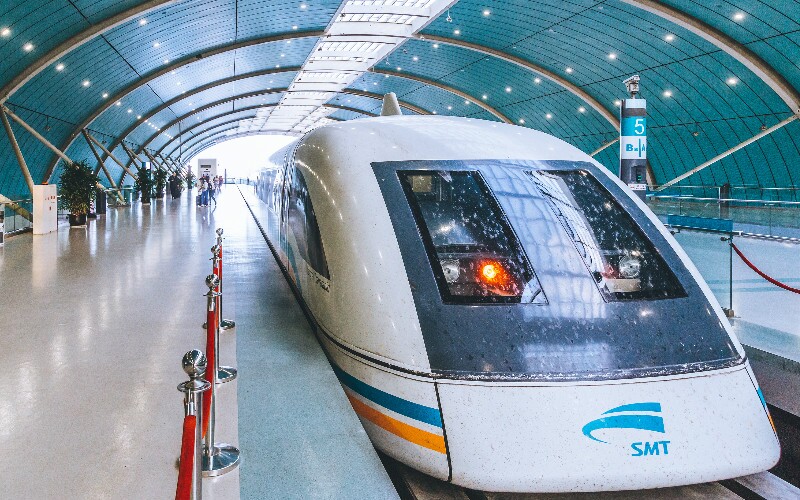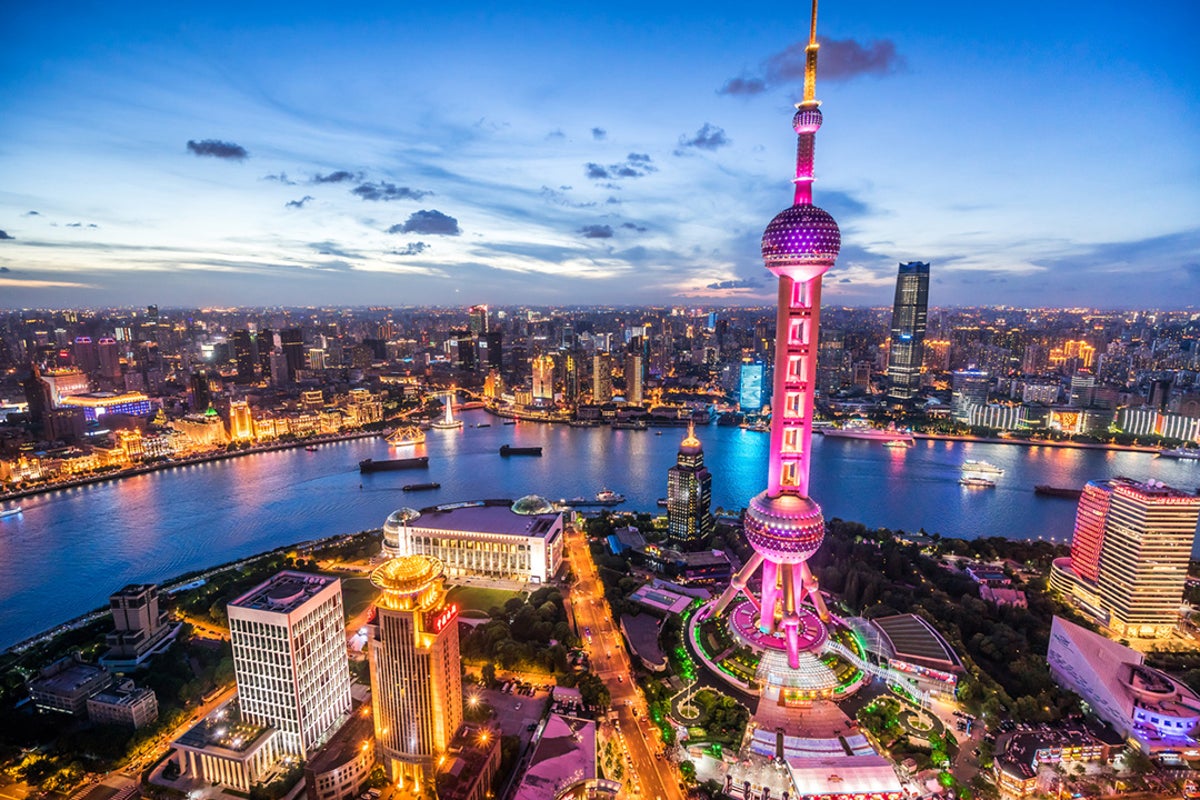China Travel Guide for Brits: All You Need to Know

Introduction
Purpose of the China Travel Guide for Brits
Travelling to China can be an incredibly enriching experience, offering a fascinating blend of ancient traditions and modern innovation. As a British traveller, embarking on a journey to China presents opportunities to explore iconic landmarks, vibrant cities, and diverse cultural heritage. The China Travel Guide for Brits serves as a comprehensive resource to help you navigate this vast country with confidence and make the most of your visit.
Importance of Understanding Chinese Culture
Understanding Chinese culture is key to having a meaningful and respectful travel experience in China. By delving into the rich tapestry of traditions, customs, and social norms, you can forge deeper connections with the locals and gain a deeper insight into this captivating country. Appreciating the nuances of Chinese culture not only enhances your travel experience but also fosters cross-cultural understanding and mutual respect.

Visa and Travel Documents
Visa Requirements for British Citizens
Before embarking on your journey to China, it is crucial to familiarize yourself with the visa requirements for British citizens. As of now, most British passport holders require a visa to enter China.
The type of visa you need will depend on the purpose of your visit, whether it is for tourism, business, or other reasons. It is recommended to apply for the appropriate visa well in advance to avoid any last-minute hassles.
Necessary Travel Documents and Permits
In addition to a valid visa, there are other essential travel documents and permits you should have when travelling to China. These include your passport (with at least six months validity), a return flight ticket, proof of accommodation bookings, and travel insurance.
If you plan to visit certain restricted areas like Tibet, you may need additional permits. It is advisable to check the specific requirements based on your travel itinerary and ensure all documents are up to date.

Language and Communication
Basics of Mandarin Phrases for Travelers
While English is spoken in major tourist areas in China, knowing some basic Mandarin phrases can greatly enhance your travel experience. Learning simple greetings like "ni hao" (hello) and "xie xie" (thank you) can go a long way in connecting with locals and showing respect for their culture. Additionally, phrases like "duo shao qian" (how much) and "zai na li" (where is) can be useful when shopping and navigating the streets.
Tips for Effective Communication in China
Effective communication in China goes beyond language skills. Non-verbal communication, such as gestures and body language, plays a significant role in interpersonal interactions. When conversing with locals, maintain a respectful and courteous demeanour. Patience and a willingness to learn and adapt to local customs can help bridge any language barriers and facilitate smoother communication during your travels.

Currency and Money Matters
Understanding the Chinese Currency
The official currency of China is the Renminbi (RMB), with the primary unit being the Yuan (¥). When handling cash, you will come across both paper notes and coins in various denominations.
Familiarize yourself with the different denominations to avoid confusion when making purchases or transactions. Major credit cards are accepted in urban areas, but it is advisable to carry some cash for smaller establishments and markets.
Currency Exchange Tips and Managing Finances
Before travelling to China, it is recommended that a small amount of local currency be exchanged for immediate expenses upon arrival. When exchanging money, opt for reputable banks or exchange counters to ensure fair rates and avoid scams.
Budgeting for your trip and keeping track of your expenses can help you manage your finances effectively throughout your stay in China. Consider using local apps for payments and keeping a mix of cash and cards for convenience.

Transportation in China
Overview of Transportation Options
China boasts a well-developed transportation network that offers a variety of options for travellers to explore the vast country. From high-speed trains connecting major cities to domestic flights for long-distance travel, you can choose the mode of transportation that best suits your itinerary.
Public buses, taxis, and ride-sharing services are also widely available for convenient local travel within cities and towns. Consider the distance, speed, and comfort when selecting your preferred mode of transportation in China.
Navigating Public Transportation in Major Cities
Public transportation is a popular and efficient way to get around in major Chinese cities like Beijing, Shanghai, and Guangzhou. The metro systems in these cities are extensive, clean, and well-connected, making them ideal for navigating urban areas.
Purchase rechargeable transportation cards for easy access to buses and subways. Taxi services are readily available but ensure the driver uses the meter or agrees on a fare before starting the journey. Embrace the local transport system to experience the pulse of city life in China firsthand.
Accommodation and Food
Types of Accommodations Available
When it comes to accommodations in China, you'll find a range of options to suit every budget and preference. From luxury hotels and international chains to boutique guesthouses and homestays, there is no shortage of places to stay during your travels.
Consider popular booking platforms to compare prices and amenities, ensuring a comfortable and convenient stay throughout your trip. Hostels and dormitories are ideal for budget travellers looking to connect with like-minded individuals and explore the local culture more intimately.
Exploring Chinese Cuisine and Dining Etiquette
One of the highlights of visiting China is indulging in its diverse and flavourful cuisine. From the fiery flavours of Sichuan cuisine to the delicate dim sum of Cantonese dishes, Chinese food offers a culinary adventure for every palate.
When dining out, observe local customs, such as using chopsticks properly and not sticking them upright in your rice bowl. Tipping is not customary in China, as most restaurants already include a service charge in the bill. Embrace the communal dining style and be open to trying a variety of dishes for an authentic taste of China.

Safety and Health Tips
Travel Safety Guidelines in China
Ensuring your safety while travelling in China is paramount to a successful and enjoyable trip. Follow these essential safety guidelines to mitigate risks and stay secure during your visit:
- Keep your belongings secure in crowded areas and watch out for pickpockets, especially in tourist hotspots.
- Be cautious when using public Wi-Fi networks and avoid sharing sensitive information online to prevent cyber threats.
- Stay informed about local laws and customs to avoid unintentional violations that could lead to legal issues.
Health Precautions and Vaccinations for Travellers
Taking care of your health is crucial when exploring a new destination like China. Consider the following health precautions and vaccination recommendations before your trip:
- Ensure your routine vaccinations are up to date before travelling. Consult with a healthcare provider to discuss additional vaccines recommended for China, such as hepatitis A and typhoid.
- Pack essential medical supplies, including any prescription medications you may need, and carry a basic first aid kit for minor injuries or ailments.
- Stay hydrated, eat well-cooked food, and practice good hygiene to reduce the risk of gastrointestinal issues common in unfamiliar food environments.

Cultural Etiquette and Customs
Understanding Chinese Social Norms
Delving into the cultural etiquette of China can greatly enhance your travel experience by fostering mutual respect and understanding. Here are some key Chinese social norms to keep in mind:
- Respect for elders is highly valued, so address older individuals with appropriate titles like "aunt" or "uncle" followed by their surname.
- Avoid discussing sensitive topics like politics or religion, as these subjects can be considered taboo in Chinese society.
- Tipping is not customary in China, as it is often considered impolite. Instead, show appreciation for good service with a sincere thank you.
Etiquette Tips for Interacting with Locals
Interacting with locals in China can be a rewarding experience when approached with cultural sensitivity and openness. Consider the following etiquette tips to navigate social interactions effectively:
- Learn basic greetings and phrases in Mandarin to show respect and create a positive impression.
- Accept gifts with both hands as a sign of gratitude and reciprocate gestures of kindness with modesty.
- Dress modestly and avoid loud behaviour in public spaces to blend in with the local customs and traditions.

Sightseeing and Attractions
Must-Visit Landmarks and Attractions in China
China is a treasure trove of cultural wonders and natural beauty, offering a myriad of must-visit landmarks and attractions for travellers:
- The Great Wall of China stands as an iconic symbol of China's rich history and architectural prowess, offering breathtaking views.
- The Forbidden City in Beijing, with its intricate palaces and gardens, provides a glimpse into imperial China's grandeur. - The terracotta warriors in Xi'an, an awe-inspiring archaeological site, showcase the ancient craftsmanship of the Qin Dynasty.
- The picturesque Li River in Guilin, framed by karst mountains and lush greenery, is a serene paradise for nature enthusiasts.
Off-the-Beaten-Path Destinations for Adventurous Travellers
For travellers seeking unique and off-the-beaten-path experiences in China, consider exploring these hidden gems:
- Jiuzhaigou Valley in Sichuan Province boasts crystal-clear lakes, multi-tiered waterfalls, and vibrant forests, a paradise for hikers and nature lovers.
- Dunhuang's Mogao Caves in Gansu Province house a treasure trove of ancient Buddhist art and murals dating back to the Tang Dynasty.
- The stunning Rainbow Mountains of Zhangye Danxia Landform, Geological Park in Gansu Province, showcase a surreal landscape of colourful rock formations, a photographer's dream.
- The ancient town of Pingyao in Shanxi Province offers a perfectly preserved glimpse into traditional Chinese architecture and culture, ideal for history buffs.
Conclusion
Summary of Key Points for British Travellers Visiting China
British travellers planning a trip to China can enhance their experience by considering the following key points:
- Understanding Chinese culture and social norms can facilitate meaningful interactions and enrich your travel experiences.
- Prioritize safety and health by following travel guidelines, securing necessary documents, and taking necessary health precautions.
- Embrace the diversity of Chinese cuisine, explore iconic landmarks, and immerse yourself in the local customs for a truly authentic experience.
- Whether navigating public transportation in major cities or venturing off the beaten path to hidden gems, China offers a wealth of sights and adventures for all types of travellers.
Final Thoughts and Recommendations for a Memorable Trip
As you prepare for your journey to China, keep an open mind, embrace new experiences, and immerse yourself in the rich tapestry of Chinese culture. Here are some final thoughts and recommendations for a memorable trip:
- Pack light, stay flexible, and be prepared for unexpected surprises along the way.
- Engage with locals, try new foods, and step out of your comfort zone to create lasting memories.
- Capture moments through photographs, but also take time to appreciate the beauty and tranquillity of your surroundings.
- Cherish the friendships made, the lessons learned, and the stories collected, as they will enrich your travel adventures and leave a lasting impact.
